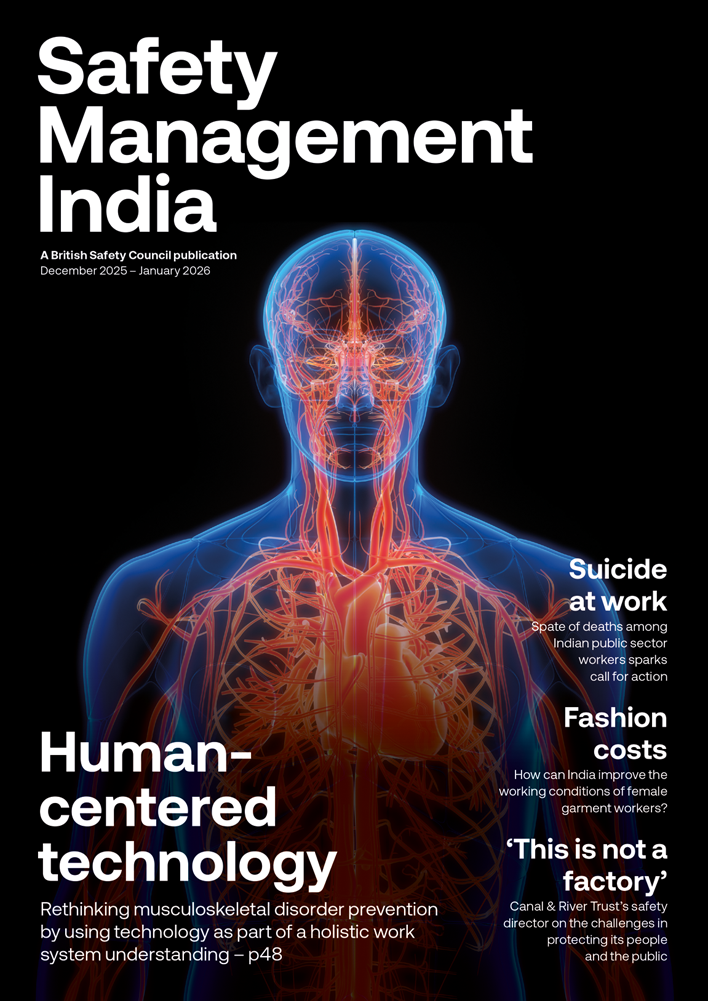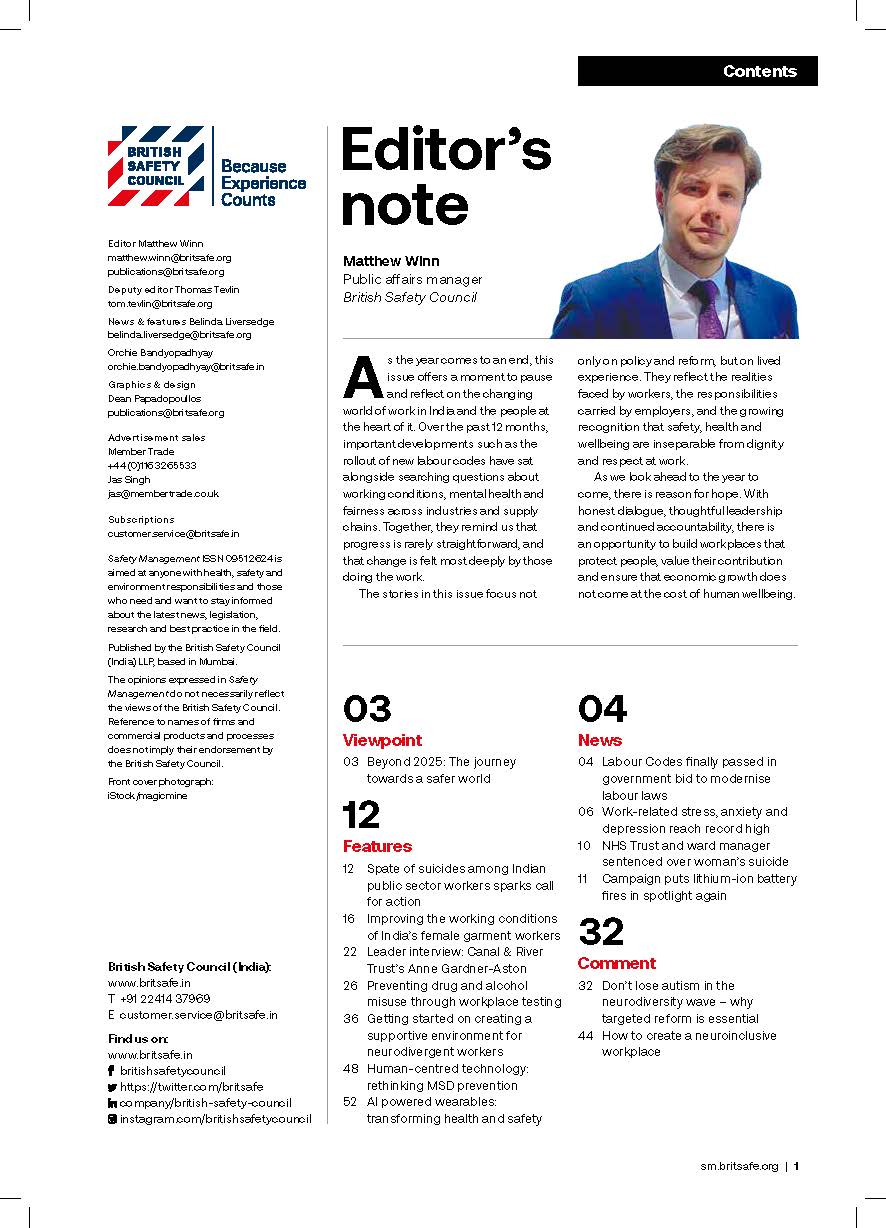Indian truck drivers face a high risk of road accidents and health problems caused by poor working conditions, and the situation is compounded by the unorganised nature of the trucking industry.
Features
Driving into danger: why Indian truckers are at risk
The trucking industry is one of the largest employers in India. As a baseline, 30 million people are employed in the industry and more than 150 million people depend on it for their livelihood, according to industry estimates.
Like many truckers, Shyam Kumar is a long-haul driver, which means he drives freight over long distances spending days, weeks and even months at a time on the road. For Kumar, long-haul driving is a lifestyle as well as a job since his truck is his home as well as his workplace. With over eight million truck drivers and 12 million truck driver helpers in India, Kumar is not alone in the health and safety challenges he faces as he drives long days and distances to meet delivery deadlines. He routinely contends with sore muscles, limited menu choices and prolonged periods of sitting.
 Credit: iStock: ZvonimirAtleti
Credit: iStock: ZvonimirAtleti
“Truckers work in unique conditions that present health and safety challenges,” says Kumar. “Irregular schedules, long hours, little physical activity, limited access to healthy foods on the road and stress make healthy living a challenge for long-haul truck drivers.”
On top of these risks to drivers’ health and wellbeing, long-haul truck drivers are also at increased risk of being involved in road crashes.
Across all vehicle types, trucks account for 21 per cent of all road fatalities in the country. According to official records, over 150,000 people lose their lives and more than 450,000 are injured in road accidents every year. This is a frightening 415 people dying every single day in the country due to road crashes, whether they be vehicle occupants or other road users, like pedestrians and cyclists.
In 2020, SaveLife Foundation, a non-profit organisation dedicated to improving road safety in India, released a nationwide, multi-city report on the working conditions and safety status of truck and lorry drivers. The report also examined other factors that affect the safety of truck drivers and other road users.
The report found truckers drive for about 12 hours a day on average, and almost 50 per cent of them said they drive even if when feeling tired or sleepy. Overall, one in five respondents admitted to taking some kind of drugs during trips.
The study also revealed that 53 per cent of drivers were dissatisfied with their profession due to low and irregular income, harassment from officials and unscheduled working hours. Health problems like severe backaches, joint/muscle/neck pain and stomach problems and lack of social security also contributed to their dissatisfaction.
The survey also found that, while the majority of truck drivers reported feeling unsafe on roads, very few of them felt that they themselves engage in unsafe driving or unsafe practices.
Unfortunately, commentators say that both the employers of truck drivers and the drivers themselves generally take very few steps to minimise the health and safety risks from long-haul truck driving.
“Employers and drivers need to be aware of the risks and put prevention strategies into place – for the long haul,” say industry experts.
In response to concerns about the safety of truck driving in India, HumSafer Driver Safety Foundation, a Pune-based non-profit organisation, has developed an app designed to encourage safer operating conditions for truck drivers and reduce their involvement in road accidents.
“We have created an entire ecosystem via our accessible platform to empower and uplift this community,” say Jehaan Kotwal and Sumedh Mane, the founders of HumSafer. “Our core belief is that by using our technology, we can change driving behaviour and save over 200 lives a day.”
The mobile phone app uses artificial intelligence to alert drivers in real-time about poor driving, such as speeding, and to reward safe driving. The developers say the unique driving score that is developed while using the app will enable employers and insurance companies to value drivers’ skills higher and provide proper compensation for the risks involved in truck driving.
“In the next five years, we will bring six lakh drivers under the HumSafer umbrella and provide a sense of community and support to this highly marginalised sector,” they say.
Kotwal’s father was a truck driver and told his son many painful stories of accidents and the harsh times he witnessed on the road. “I wanted to make a difference for him,” says Kotwal.
Campaign to improve drivers’ eyesight
Truck drivers also face the risk of assault or abuse as many of them work unsociable hours in isolation.
Another common health problem among lorry drivers is poor eyesight but fuel giant Shell has launched an initiative aimed at tackling the problem.
#DriveSafeIndia, run by Shell India and VisionSpring, a non-governmental organisation which aims to provide affordable glasses to people around the world, is helping truck drivers with poor eyesight.
Eye-testing centres have been set up at truck stops, ports and other transport hubs where truck drivers congregate.
Bernd Marx, Shell’s global general manager for road safety, says: “This campaign is especially important in India, where road fatalities are high. Shell takes the health and safety of our employees very seriously, so all our drivers get their eyes checked regularly. However, we know this is not necessarily the case for other drivers.’’
“About 70 per cent of truck drivers have some vision problem, mild or acute,” says Anshu Taneja, head of VisionSpring in India. “The younger drivers are starting to experience myopia and are therefore getting their first pair of glasses. The older ones either need to replace their old spectacles or get reading glasses.’’
Another issue is that India’s trucking industry is highly unorganised and does not have any formal standards around safe practices, say experts. Only 10 per cent of Indian truck operators own a fleet of more than 25 trucks, and most drivers own just their own single truck and rely on third parties to provide and oversee their orders.
Nilesh Ghule, co-founder and CEO of technology-led logistics company TruckBhejo, says: “Even though the trucking industry is highly unorganised, at TruckBhejo, drivers’ safety is of utmost importance. During the initial phase of the Covid-19 pandemic, we provided our drivers with all the necessary things like masks, sanitisers, protection shields etc.”
TruckBhejo also equipped its drivers with proper training on Covid-19 protocols. Further, as the majority of drivers do not have a fixed base or depot, it proved very difficult to get them to one place so they could be vaccinated. TruckBhejo therefore arranged with the owners of warehouses that drivers visit to ensure that all drivers could be vaccinated at the warehouse sites or at various locations on the road.
Another problem is that most drivers are uninsured because they cannot afford pay the premiums. As a result, the majority of drivers do not have life insurance to provide compensation to their families in the event of them being killed on the road and many lack basic medical insurance to cover the cost of treatment for injury following a road accident or other incident during their work, such as an injury while loading or unloading their vehicle.
“There is a strong need to spread awareness amongst drivers about insurance and maybe special insurance packages should be developed for truck drivers that are simple to understand and cost-effective too,” adds Ghule.
FEATURES

The price of fast fashion is not pretty
By Orchie Bandyopadhyay on 11 December 2025
The largely female workforce in India’s garment manufacturing industry faces long hours, low wages and poor working conditions, and campaigners say it is time the Indian government and international clothing brands took tougher action to improve working conditions, pay and employment rights.

Suicide at work: a major problem in India
By Orchie Bandyopadhyay on 11 December 2025
Recent reports of suicides among workers ranging from police officers to electoral roll officials have prompted calls for employers and government agencies to do more to both reduce excessive workloads and provide better mental health support at work.



